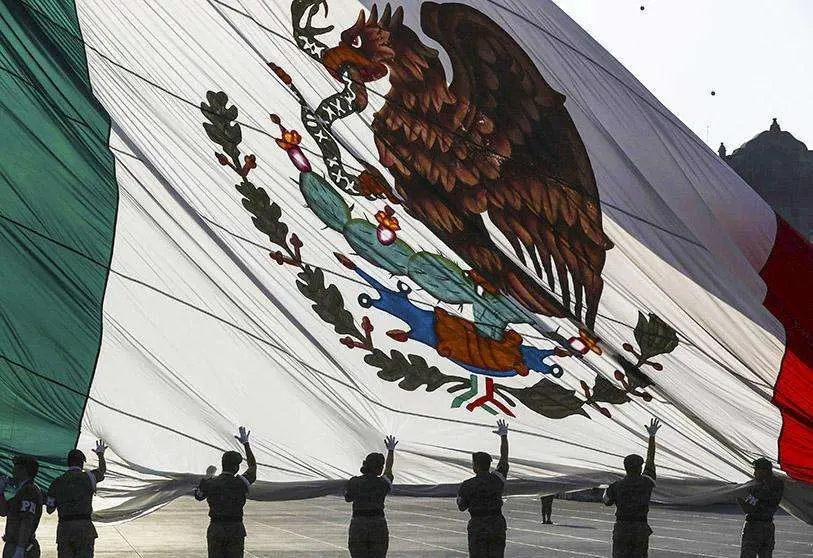Quirino lands in Madrid

The last few months have been full of rumours and intense nervousness because the Spanish Foreign Ministry's approval of Quirino Ordaz Coppel as Mexico's new ambassador to Spain was delayed (by five months), which many interpreted as the tip of the iceberg following the cooling of diplomatic relations between Mexico and Spain as a result of President Andrés Manuel López Obrador's request for a historic pardon.
The current Foreign Minister, José Manuel Albares, played down the matter by pointing out that it was only a question of the process being completed before the ex-governor of Sinaloa was given the go-ahead.
And he has complied. On 28 January, Chancellor Marcelo Ebrard himself celebrated the approval granted to Ordaz Coppel; the Mexican Senate ratified it on 8 March and, as if that were not enough, at the end of the month, the PRI ended up expelling the new ambassador from its ranks.
For the 59-year-old businessman, politician and now diplomat, a new phase begins in one of the most sought-after embassies: along with those of the United States, the United Kingdom and France, which are the jewels in the crown. Practically a great prize.
But also a great responsibility. Ordaz Coppel has finally landed in Madrid, after voting on 10 April in the referendum to revoke López Obrador's mandate. He practically voted and flew to the Spanish capital.
On Holy Monday he made his first official visit to the Mexican Embassy located in Carrera de San Jerónimo, just opposite the Palacio de las Cortes, the seat of the Congress of Deputies. A privileged location.
The following day he met the thirty or so workers who work at the diplomatic headquarters to introduce himself, talk to them and tell them that he had come to work for the good of Mexico.
On his Twitter account @QuirinoOC he wrote: "#GoodNight Madrid #GoodEvening Mexico, we have arrived to settle in @EmbEspMex greetings and have a good week, rest to start working from the first day".
#BuenasNoches Madrid y #BuenasTardes México, ya llegamos a instalarnos en la @EmbEspMex, saludos y que tengan una buena semana, a descansar para iniciar trabajando desde el primer día. pic.twitter.com/gRGqygnIIX
— Quirino Ordaz (@QuirinoOC) April 11, 2022
The Mexican Embassy's Twitter account also tweeted that "at the beginning of his term, Ambassador @QuirinoOC introduced himself and met officials from all areas of @EmbaMexEsp to whom he conveyed his firm intention to work as a team to give the best of Mexico and strengthen relations with Spain".
That is the most important thing: revitalising bilateral relations between two sister nations and melting the ice created around diplomatic ties in case anyone was offended by the vacuum around the pardon issue that was then used to sour the diplomatic tone. The famous "pause in relations" generated a series of questions in Spain to such an extent that Minister Albares travelled to Mexico City to speak with Ebrard.
It remains to look ahead to narrow channels and build initiatives for the future in order to bring closer the vision of two countries that believe in the value of democracy.
Ordaz has a lot of work ahead of him at a diplomatic headquarters that has made a vacuum for several groups of Mexicans in Spain because Roberta Lajous, the previous ambassador who left her post to be replaced by María Carmen Oñate, only attended to invitations from the Monarchy and the Cervantes Institute.
There are more and more Mexicans - almost 30,000 - living in the Iberian country for various reasons. For many Mexican nationals living outside Madrid or Barcelona, a simple procedure can turn into a nightmare, whether it is carried out at the Consulate in Madrid or Barcelona (opening hours end at 1 p.m.). Not to mention renewing a passport or registering a birth. You have to pay for a hotel, travel, meals and, of course, the paperwork.
Somehow it has to be made easier to manage the paperwork and the turnaround time. Then there is the lifelong problem: the Mexican driver's licence is not valid in Spain, there is no way to validate it, as is the case in other Latin American countries.
Since it cannot be validated, any Mexican living in Spain cannot drive a vehicle without first going to a driving school, where you have to pay an average of 300 euros, plus driving lessons (even if you already know how to drive) and then 100 euros - on average - to take the police test. More than a few compatriots have been detained in Spain for not having a Spanish driving licence. Only diplomatic skill would put an end to this via crucis through the creation of a single Mexican driving licence, which would be processed at the two consulates and then validated by the relevant Spanish institutions. This would require discussions with Minister Albares and Interior Minister Fernando Grande-Marlaska. That would be a milestone.

